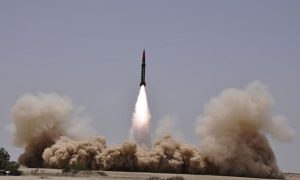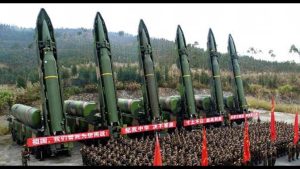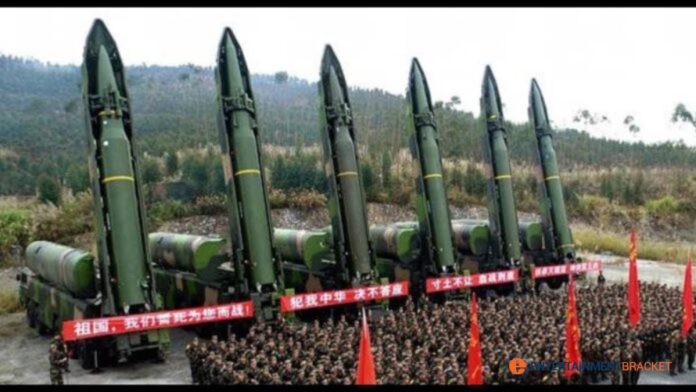Pakistan Nuclear: Pakistan possesses the most extensive and powerful nuclear arsenal. Pakistan joined in developing the uranium enrichment pathway in the middle of the 1970s to demonstrate the potential of Pakistan’s nuclear weapons. In May 1998, Pakistan ordered nuclear testing; shortly after, India declared itself a nuclear-weapon state and conducted its nuclear test.
Pakistan now has an expanding nuclear arsenal and refuses to sign both the Comprehensive Nuclear Test Ban Treaty (CTBT) and the Treaty on the Non-Proliferation of Nuclear Weapons (NPT) (CTBT). Pakistan is also the only country impeding the Fissile Material Cut-Off Treaty talks (FMCT)
Lahore Railway Stations and Timings – Pakistan Railways
Pakistani nuclear capability

Shaheed Zulfiqar Ali Bhutto was responsible for Pakistan’s nuclear weapons in 1972. Although he continue to serve as the country’s minister of petroleum, power, and natural resources, he was nonetheless credite with founding the platform. After that, he was appointe head of state. Zulfiqar Ali Bhutto announce the nuclear weapons programme at a session with physicists and engineers in Multan in January 1972. Shortly after east Pakistan was lost in fighting with India in 1971.
India gave Pakistan’s nuclear programme new life in 1974 after it confirmed the existence of nuclear-powered weapons. Pakistan’s nuclear weapons database developed delicate uranium enhancement tools and expertise throughout the late 1970s. These energies were radicalize following Dr. Abdul Qadeer Khan’s entry.
Pakistan nuclear weapons

Dr. Abdul Qadeer Khan was a metallurgist with German training who travelled with stolen European uranium-enhanced technologies. Dr. Abdul Qadeer Khan was responsible for setting up the Pakistani Kahuta facility. Which was acknowledge in 1976. He also prepared it before it opened. Abdul Qadeer Khan instructed the Pakistani staff to create a broad network of covert connections to access the equipment and information resources needed to develop uranium enhancement capabilities.
Pakistan pioneered the process of producing uranium for use in weapons in 1985, and it was determine in 1986 that Pakistan had produced enough fissile material for an atomic programme. Several Pakistani bases claimed the nation could carry a nuclear detonation in 1987.
Pakistan became the seventh nation in the world to formally test a nuclear weapon after conducting the world’s first nuclear weapon test in 1998. Although the precise amount of weapons in the nation’s arsenal is still unclear, estimates range from 5 to 12 kilotons (kt) for most of those weapons, including a wider variety of ballistic missiles with a potential range of 40 kt. While attempting to provide a “minimum credible deterrence” against India’s nuclear and larger conservative forces, Pakistan has not publicly declared a planned nuclear and wider nuclear posture. In addition, Pakistan has adopted a “no first use” policy in opposition to governments without nuclear weapons.
Nuclear power plant

Pakistan has five operational nuclear power facilities, and two more are currently being built. The domestic labour force and the country’s substructure of nuclear power expertise are honourable in supporting the country’s nuclear power extension programme of 8800MW in 2030.
Furthermore, PAEC will manage about six nuclear power plants across the nation, said PAEC chairman Muhammad Naeem at the opening of the K-2 plant, which will have two based in Karachi. Karachi Nuclear Power Plant Units 1 and 2 are known by these designations. While Chashma Nuclear Power Plant Units 1 through 4 in District Mianwal will be home to four power plants.
The first nuclear-powered power plant in Pakistan, locate in Karachi, is undergoing a 2.2GW volume expansion lead with the other two 1.1GW PRESSURISED WATER REACTOR (PWR) units, which were designed in part by Chinese engineers. Also, a $10 billion project presence was built with financial assistance from China, Pakistan’s top shareholder in infrastructure and energy. The largest nuclear power station in Pakistan is Karachi Nuclear Power Plant (KNUPP), also called the money-making power plant. It has a tiny 137Mwe CANDU, Canadian pressurized heavy water reactor.
| Years | Years covered | Test |
| Chagai I | 1998 | 1 |
| CHAGAI II | 198 | 1 |
| TOTALS | 1998-May-28 to 1998-May-30 | 2 |
Pakistan nuclear test
Two nuclear tests have taken place in Pakistan. Pakistan’s first nuclear bomb test in the open was call Change-I. The nuclear test was conduct in retaliation for India’s nuclear test. It was a direct response to India’s subsequent nuclear test, which was carrie out on May 11 and 13.
Pakistan nuclear program

Pakistan asserts that the development of its nuclear arsenal was sparked by its antagonistic relationship with India; the two nations have engaged in several disagreements, most of which have their origins in the Jammu and Kashmir regions. The Pakistan thus began working on its atomic programme at the end of the 1950s. In addition, The Pakistan Atomic Energy Commission was established in 1965.
Shaheed Zulfiqar ALI Bhutto, a former president, persuadingly advocated for the nuclear option. In 1956, Shaheed Zulfiqar Ali Bhutto declared, “If India builds a bomb, we’ll create a bomb of our own. In addition, Zulfiqar Ali Bhutto issued a direct order to Pakistan’s nuclear establishment to manufacture nuclear weapons within a three-year window following Pakistan’s defeat in its dispute with India in December 1971. Pakistan’s workforce was inspire to develop a nuclear bomb after being attack by India in 1974. Despite the PAEC having previously establishe a task force that might graft on developing one in March 1974.
Pakistan began its nuclear construction efforts in the 1950s, referred to as the nuclear-powered power and energy programme. The “Atoms for peace” programme, which was necessary to spread knowledge of nuclear energy worldwide, was nevertheless heavily influenced by the United States of America. Pakistan established the Atomic Energy Commission (PAEC) in 1956. In addition, the US offered Pakistan the five-megawatt Pakistan Atomic Research Reactor (PARR-1) large reactor in 1962.
Pakistan Nuclear Regulatory Authority
The government of Pakistan has given the Pakistan Nuclear Regulatory Authority the power to regulate the use of ionizing radiation, radioactive sources, and nuclear energy. The Pakistan Nuclear Regulatory Authority aims to protect the general public, radiation workers, and the environment from the harmful effects of ionizing radiation by developing and relating clear principles, establishing a relationship of trust with the owners, and maintaining transparency in its actions and judgements.
Although Pakistan claimed that the only reason for developing its nuclear programme was to pursue peaceful uses of nuclear energy, there were still several symbols on hand suggesting that the country had other goals in mind when developing its nuclear arsenal. This was evident during the start of the Indo-Pak War in 1985, which resulted in India’s victory and Pakistan’s defeat. Bhutto reportedly said, “If India builds the bomb, we would eat grass or leaves, even go hungry, but we will obtain one of our own,” according to a spokeswoman.
Pakistan institute of nuclear science and technology

The primary nuclear-powered research and development foundation in Pakistan is (PINSTECH). The Pakistan Atomic Energy Commission founded the Pakistan Institute of Nuclear Science and Technology to address Pakistan’s lack of technical expertise and a skilled labour force. The facility’s reactor building and subsidiary structures were finishe in 1965, and in 1974 a public library and many research labs went into operation.
Ishrat Usmani, the chairman of PAEC, devoted authority reserves to mentoring the next group of Pakistani scientists during these early years. Usmani established the Pakistan Institute of Nuclear Sciences and Technologies (PINSTECH) in 1965 and sent many of the nation’s freshmen students abroad to pursue their chosen fields of study.
Keywords (7)
- nuclear power plants in Pakistan
- Pakistan nuclear power
- Pakistan nuclear weapons
- Pakistan nuclear test
- Pakistan nuclear regulatory authority
- Pakistan nuclear program
- Pakistan institute of nuclear science and technology

